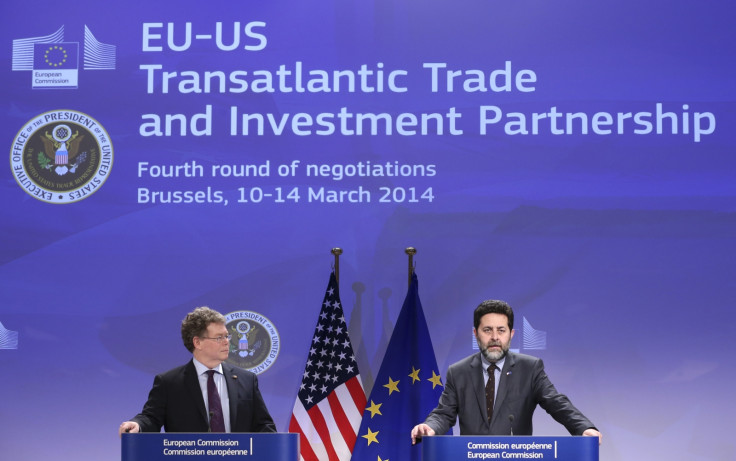TTIP: Deal Delayed by Campaigners Hijacking ISDS Consultation

EU officials have confirmed that an orchestrated campaign by NGOs and trade unions have put severe delays on the EU-US free trade agreement.
Earlier this year, the former EU Trade Commissioner Karel De Gucht opened a public consultation into the inclusion of an investor protection clause in the Transatlantic Trade and Investment Partnership (TTIP).
However, Reuters' EU sources have said that over 95% of the 150,000 submissions came from a small group of organisations that oppose the deal and which are particularly hostile to the inclusion of the investor-state dispute settlement (ISDS) clause.
Campaigners believe the inclusion of such a clause, which is designed to protect the overseas assets of investors, could blow open public services for privatisation, lower standards and challenge local government authority. Fears focus on the fact that companies can sue governments in non-transparent, private tribunals for perceived devaluing of their assets.
And despite the fact that ISDS has been included in thousands of trade agreements involving the EU, even mainstream parties have begun to come out in opposition to its inclusion.
Top-level government officials in Germany and France have voiced concerns over its inclusion, while a vote in the Dutch Parliament today (26 November) went against ISDS' inclusion (however, the result of the poll has since been disputed, with one party thought to have voted erroneously).
One EU official told Reuters: "The public consultation has not delivered a clear-cut conclusion on investment protection. Delays to a decision are now inevitable."
The EU had hoped to complete the analysis of the consultation by the end of the year. In an interview with IBTimes UK, Karel De Gucht voiced optimism that the process would be complete by November, but it now looks more likely to run into Spring 2015.
This setback comes as supporters of TTIP have been urging negotiators to press on, in the hope of securing a comprehensive deal before the US primaries begin in early 2016, at which point TTIP is likely to be put on the backburner until after the elections.
UK Prime Minister David Cameron spoke recently of wanting to put the "rocket boosters" under negotiations, while the Chair of the Foreign Affairs Council for Trade Carlo Calenda warned last week that if an agreement is not secured in the coming year, then it may have to wait until 2018 – at which point Europe's negotiating position will be weaker.
The new Trade Commissioner Cecilia Malmström has attempted to appease opponents by making the negotiations more transparent. Malmström will declassify TTIP negotiating documents, publish more texts and allow all MEPs to access TTIP texts. The move has been broadly welcomed.
"This is an important step forward, enabling proper democratic control of the talks by the European Parliament and increasing the credibility of the negotiations. The more we share, the more we can debate the content of the agreement," said the Labour Party MEP Jude Kirton-Darling.
She added: "It is great that the Commission is willing to be transparent about what it has already done - we now need to see transparency and public engagement around its future intentions, especially on ISDS."
In October, however, the US' chief negotiator Michael Froman spoke of the importance of ISDS to TTIP. "It's hard to imagine a high standard agreement ... that does not have a high standard of investor protections as well," he said.
Others have warned that failure to include it would leave both sides struggling to include the clause in future trade agreements. Of particular consternation would be an inability to include investor protection in any future agreement with China.
© Copyright IBTimes 2025. All rights reserved.





















